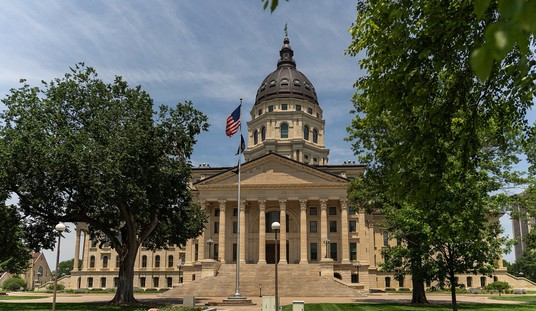Those who've been watching the legal battles unfold regarding President Donald Trump's executive order on birthright citizenship have been awaiting the next move from the lower courts, following the Supreme Court ruling on the matter at the end of June.
We've since had several rulings, including a classwide certification as to individual (infant) plaintiffs, and now, a ruling on Wednesday from the 9th Circuit holding the executive order "likely" unconstitutional. How did we get here, and what comes next?
How We Got Here
On Day One of the second Trump administration, one of several executive orders signed by President Trump addressed the issue of birthright citizenship. Titled "Protecting the Meaning and Value of American Citizenship," the order asserts that U.S. citizenship does not automatically extend to persons born in the United States:
(1) when that person’s mother was unlawfully present in the United States and the father was not a United States citizen or lawful permanent resident at the time of said person’s birth, or (2) when that person’s mother’s presence in the United States at the time of said person’s birth was lawful but temporary (such as, but not limited to, visiting the United States under the auspices of the Visa Waiver Program or visiting on a student, work, or tourist visa) and the father was not a United States citizen or lawful permanent resident at the time of said person’s birth.
Of course, as soon as the EO was issued, suits were filed in several different jurisdictions, including Washington, Maryland, and Massachusetts. Within days, a federal judge in Washington issued a temporary restraining order (TRO) on the measure, blocking its effect nationwide, and later entered a preliminary injunction on the matter. The administration appealed and was, unsurprisingly, shot down by the 9th Circuit Court of Appeals. A similar pattern followed for the Maryland and Massachusetts cases, with each court issuing a nationwide injunction as to the executive order.
The administration then asked the Supreme Court to weigh in on the matter, specifically as to the propriety of the nationwide or universal injunctions that had issued (not as to the merits of the EO itself). The cases were consolidated, and oral argument was heard by the court on May 15. On June 27, the court issued its ruling:
In a 6-3 decision authored by Justice Amy Coney Barrett, the court granted the government's applications to partially stay the district court's nationwide injunctions in the birthright citizenship cases, noting that universal injunctions "likely exceed the equitable authority that Congress has granted to federal courts." The caveat here is that the applications are granted "only to the extent that the injunctions are broader than necessary to provide complete relief to each plaintiff with standing to sue." (The three dissenters were, as one might expect, the three liberal justices: Sonia Sotomayor, Elena Kagan, and Ketanji Brown Jackson.)
READ MORE: Big: Supreme Court Rules on Nationwide Injunctions in Birthright Citizenship Cases
Note the caveat mentioned above. The court instructed the lower courts to "move expeditiously to ensure that, with respect to each plaintiff, the injunctions comport with this rule and otherwise comply with principles of equity." And they have.
The day of the Supreme Court decision, a case was filed in New Hampshire on behalf of individual plaintiffs (infants or unborn children who fall into the categories outlined in the EO), and the judge swiftly certified a class of plaintiffs and issued a classwide (not nationwide or universal) injunction.
READ MORE: Breaking: Federal Judge Blocks Trump Birthright Citizenship EO As to Infants
In CASA v. Trump (the Maryland case), Judge Deborah Boardman issued an "indicative ruling" that she would enter a classwide injunction (similar to the New Hampshire case) when/if she regained jurisdiction over the case, which is currently on appeal before the 4th Circuit.
In the Massachusetts case (New Jersey v. Trump), the 1st Circuit Court of Appeals remanded the case to the district court "for the limited purpose of enabling the District Court to consider the bearing, if any, of that guidance in CASA on the scope of the preliminary injunction in No. 25-1170 and to act accordingly." A hearing was held before Judge Leo Sorokin on July 18 regarding how the parties believe the case should proceed in light of the Supreme Court ruling, though he has yet to enter an order in that regard.
And now, in the Washington case (Washington v. Trump), the 9th Circuit has issued its ruling:
Because the Individual Plaintiffs are covered by a certified class action in another federal court, we decline to exercise jurisdiction over their claims and dismiss them. But because State Plaintiffs have standing and are likely to succeed in demonstrating that the Executive Order is unconstitutional, we affirm the district court’s grant of a preliminary injunction and its determination that a universal preliminary injunction is necessary to give the States complete relief on their claims.
Thus, as to the state plaintiffs (Washington, Arizona, Illinois, Oregon), the 9th Circuit has affirmed the lower court's injunction and determined that in order "to give the states complete relief on their claims," a universal injunction is warranted.
The court explained this was so because:
States’ residents may give birth in a non-party state, and individuals subject to the Executive Order from non-party states will inevitably move to the States...To account for this, the States would need to overhaul their eligibility-verification systems for Medicaid, CHIP, and Title IV-E. For that reason, the States would suffer the same irreparable harms under a geographically-limited injunction as they would without an injunction.
What Comes Next?
The administration has not formally responded to these post-SCOTUS decision rulings yet, but it's a fairly safe assumption that it will appeal them. Realistically, that means we could see the merits of the EO and birthright citizenship before the court in its 2025 term. Certainly, this 9th Circuit ruling would seem to tee the issue up nicely. The decisions in the other two cases may lag a bit, but presumably, they'll want to line it up so that the issue is addressed squarely, once and for all.
In the meantime, we wait and we watch as this issue (and a multitude of others) work their way through the legal process. In many ways, it's tedious, yes. But it's also a fascinating window into the judicial system and the separation of powers. At least...I find it so.
Editor's Note: Radical leftist judges are doing everything they can to hamstring President Trump's agenda to make America great again.
Help us hold these corrupt judges accountable for their unconstitutional rulings. Join RedState VIP and use promo code FIGHT to get 60% off your membership.















Join the conversation as a VIP Member